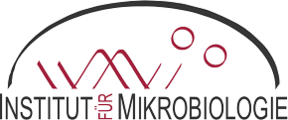
Tetrapyrroles participate in fundamental biological processes. They are essential components of the metabolism of practically all organisms on earth as they play a central role in electron-transfer-dependent energy-generating processes such as photosynthesis and respiration. They also function as prosthetic groups for a variety of enzymes. The most commonly found tetrapyrroles in nature are chlorophylls and bacteriochlorophylls. These magnesium-containing tetrapyrroles are essential for light harvesting and energy transduction during photosynthesis. Iron-chelating haems represent the prosthetic group of haemoglobin, where they are responsible for the transport of oxygen and carbon dioxide in the blood. They are also integral parts of the electron-transfer chains for the generation of respiratory energy. Our group investigates the enzymes and enzyme mechanisms of haem biosynthesis which are involved in the organisation and structure of these tetrapyrroles using biochemical and biophysical analyses. Moreover, we are interested in alternative pathways of different organisms which lack genes for the conservative pathway, however are able to produce haem. Additionally, we investigate the transport of haems to their target molecules in the cell.
This project is funded by the Graduate School PROCOMPAS of the German Research foundation (DFG; Deutsche Forschungs Gemeinschaft) and investigates the assembly and assembly composition of protein complexes of the anaerobic respiration chains of the pathogenic bacterium Pseudomonas aeruginosa. Here, the protein complexes are cross-linked in vivo, isolated and analysed using an interactomics approach. The obtained data are validated using a second method, the bacterial adenylate two hybrid system (BACTH). The aim is to analyse the isolated components of the complexes and their protein domains for their binding affinities (kd) and interacting structures. Additionally, co-crystallisation studies are to be performed to understand the molecular structures.
Many microorganisms produce mVOCs, which are responsible for the inter- and intra-organismic communication, for instance mutual attraction or defense, chemical weapon against food opponents or generating a growth advantage. mVOCs from plants and fungi are known for some time, however this does not account for mVOCs from bacteria.We isolated a new bacterial species from a bladder catheter tip, Myroides A21. This yellow bacterium emits a fruity odor and produces >50 different esters and derivatives which have a great impact to other bacterial species. E.g. Pseudomonas looses its green colouring and Proteus mirabilis its swarming capacity when in contact to those molecules. These esters mainly are cytotoxic. The aim of these investigation is to determine the biosynthesis and target sites of the mVOCs and how they interfere biochemically within the cellular processes.
This project is a cooperation with the group of Prof. Dr. Miguel Vences, Zoology, TU Braunschweig. On the Galapagos Island San Cristóbal live two endemic, solely vegetarian iguana populations of Amblyrhynchus cristatus godzilla and A. c. mertensi which do not genetically proliferate. The one lives in the north of the island, only eating green algae (Ulva sp.), the other in the south, eating red algae (Centroceras sp. and Gelidium sp.). The marine iguanas are the only ones feeding in the ocean. Analyses of the feces of these species revealed a number of gut bacteria which are currently being determined by 16S rDNA sequencing.